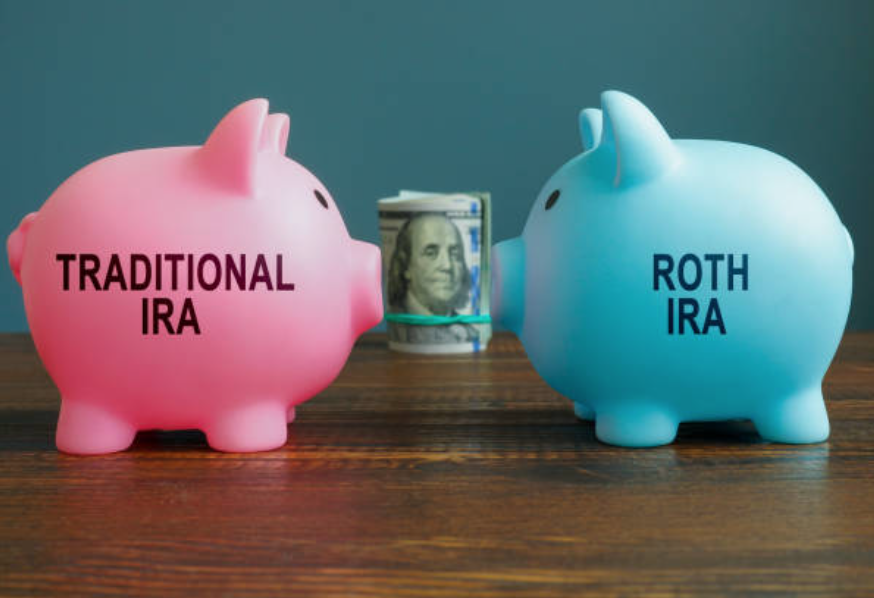Should You Contribute to a Traditional or a Roth IRA for your future?
If you are fortunate enough to have a job that offers a retirement plan, you might be wondering how you can set aside money for your own future.
One of the most common questions I get is: Should I contribute to my Traditional or Roth IRA for my future?
Thankfully, there are a variety of different ways you can save for retirement. Depending on your specific situation and goals as they relate to your financial future, you may be able to take advantage of both accounts. But should you?
While both Traditional and Roth IRAs have their pros and cons, understanding which is right for you — along with understanding the differences between the two — can go a long way in helping you make an informed decision about which will serve your needs best. We’ll explore the details about these two IRA types below so that you can make the best decision possible on which is right for your personal circumstances.
What is a Traditional IRA?
Traditional IRAs are one of the most common types of retirement accounts. Traditional IRAs allow you to set aside a set amount of money each year — up to $6,000 per year (2022), plus an additional $1,000 (2022) if you are over 50 — in a tax-advantaged account. That means you won’t have to pay taxes on the money you put into your IRA until you withdraw it after retirement. Traditional IRAs are especially beneficial to those who are in a higher tax bracket now than they expect to be in the future.
With Traditional IRAs, you receive a tax deduction on the contributions now and defer paying taxes on the withdrawals until a future date. If you expect to be in a lower tax bracket when you retire than you are now, a Traditional IRA might be a better choice for you. If you expect to be in a higher tax bracket when you retire, a Roth IRA might be a better choice for you.
What is a Roth IRA?
Roth IRAs are another type of retirement account that allows you to set aside money for your future. Roth IRAs differ from Traditional IRAs in that you don’t get a tax deduction on contributions now — they are made with after-tax dollars — but all of the growth is completely tax-free. This differs from the Traditional IRA where the contributions are deductible today — but then you pay tax in the future.
Roth IRAs have some big benefits in the long run. Roth IRAs are especially beneficial to those who are in a lower tax bracket now than they expect to be in the future. Additionally, Roth IRAs are a valuable estate planning tool. They have unique rules when it comes time to pass along, and when it comes to tax and estate planning, there are several benefits. And again, the money grows tax-free.
Which One Is Right for You?
When deciding which type of IRA is right for you, you’ll want to take a look at your unique financial situation and goals. However, one thing to keep in mind is that you have until the April tax filing deadline to make your IRA contribution for the year — so you have plenty of time to make your decision. Once you decide which type of IRA is best for you, you’ll want to be sure to start making contributions as soon as possible. Why? Because the sooner you start saving, the more time your money has to grow. The earlier you start saving for retirement, the less you have to worry about what will happen after you retire.
How to Decide Which Type of IRA is Best for You?
There are a few factors you’ll want to consider when making your decision. Some of these factors may weigh more heavily in your decision than others, but they are all important to consider. Here are some of the factors you’ll want to keep in mind when deciding which type of IRA is right for you:
• Current tax situation – If you are in a lower tax bracket now than you expect to be when you retire, a Roth IRA might be a great way to save for retirement. If you expect to be in a lower tax bracket when you retire, a Traditional IRA might be a better choice for you.
• Future tax situation – If you expect to be in a higher tax bracket in the future, a Roth IRA would be a good choice for you. If you expect to be in a lower tax bracket in the future, a Traditional IRA would be a good fit for you.
Conclusion
Deciding if you should invest in a Traditional or Roth IRA is an involved and important decision. There are many factors such as your income, your tax bracket, your future goals, and your risk tolerance. Contact us today for more information.
Take the Next Step
Are you ready to start taking control of your financial future? New Century Investments is here to help. We are a holistic, tax-focused financial planning firm that can provide you with the peace of mind and confidence you need throughout your life. We have experienced CPA and CFP® professionals on staff who can provide you with comprehensive services, including tax preparation, investment management, tax planning, financial planning, retirement planning estate planning, and wealth building for entrepreneurs. Schedule your free consultation today to learn more about how we can help you reach your financial goals.
Matt Ward, CFP®
817-238-6300
Matt.Ward@newcenturyinvestments.com





